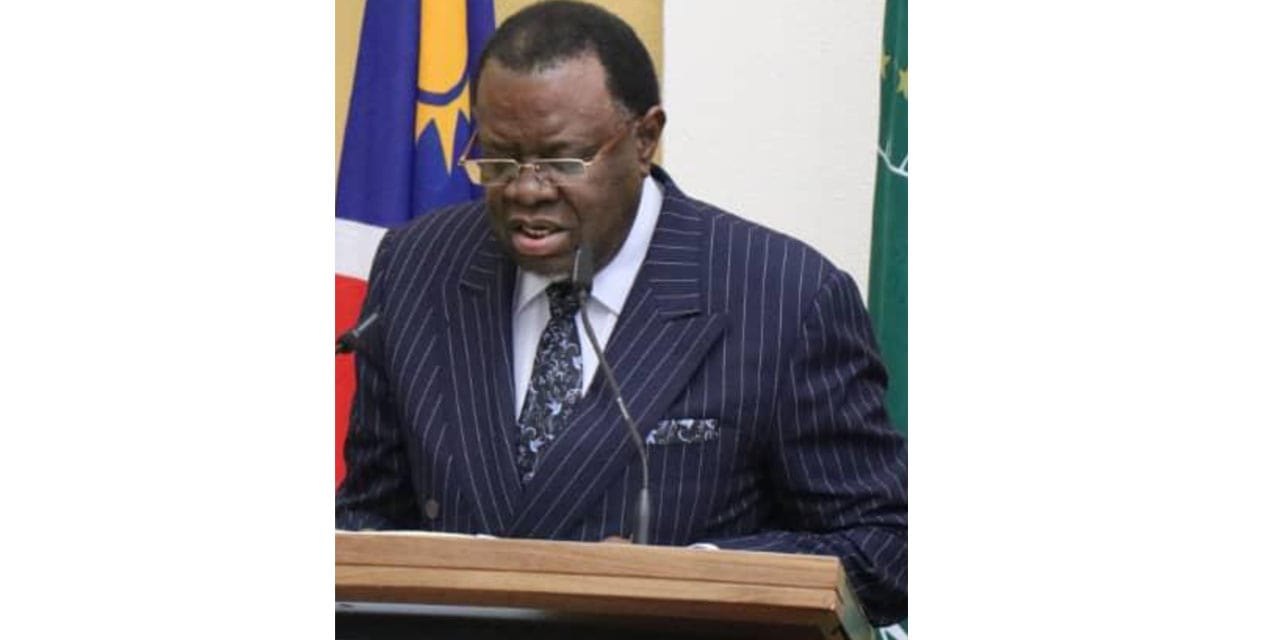Niël Terblanché
The commemoration of the International Day of the African Child, under the theme ‘The Rights of the Child in the Digital Environment,’ recognises the urgent need to safeguard the rights of children as they navigate the opportunities and challenges of the digital age and calls for reflection and dedication to addressing the myriad challenges facing children.
In a special message, President Hage Geingob on behalf of all Namibians stated that the Soweto Uprising on 16 June 1976 was a turning point in the struggle for freedom in Southern Africa.
“As a way to honour the brave actions taken by those young people 47 years ago, we recognise how the world has changed with the Fourth Industrial Revolution, which is accelerating Artificial Intelligence, Robotics, the Internet of Things (IoT), and other technologies in the digital environment. These wide and dynamic changes in the digital environment have changed and reshaped how children exercise and realise their rights,” he said.
According to the President, children are increasingly exposed to the internet and the virtual environment.
“Therefore, the effects of the digital environment on children need to be considered in the context of rights under the African Charter and the United Nations Convention on Children’s Rights,” he said.
Children now have access to the vast potential of the Internet, which includes connectivity, education, innovation, and entrepreneurship. Alongside these opportunities, evident threats exist, including online child sexual exploitation, cyberbullying, abuse and cybercrime, necessitating a multi-stakeholder approach to guarantee the promotion and protection of children’s rights.
Geingob reiterated that the rights of the child offline are the same as online and in any other environment.
“The Government of the Republic of Namibia has made progress with regard to the rights of the child in the digital environment,” he indicated.
Geingob said that in 2020, Namibia rolled out the National Broadband Policy, which expressly included children in the development of its advocacy and information dissemination strategies.
“We are committed to ensuring that all schools have a broadband infrastructure by 2030. In 2016, Namibia also signed the WePROTECT Global Alliance’s Statements of Action to Tackle Online Child Sexual Exploitation,” he said.
He added that a National Multi-Stakeholder Task Force was established to continuously monitor the implementation of the national framework and road map for child online protection.
“The progress we have made in the Namibian House to advance the rights of children is commendable. However, more still needs to be done. These include developing legislation and policies that are child-focused in relation to the digital environment, strengthening awareness and capacity at the household level, and creating mechanisms to enforce accountability for children’s online safety,” he said.
The President called on parents, caregivers, the private sector, civil society organisations, and child and youth-led organisations to play their part in the promotion and protection of children’s rights in all spheres of society.
“As we mark the International Day of the African Child, let us hold hands and collaborate to uphold the rights of our children in the digital environment. Let us take decisive action to invest in digital literacy and equip children with tools to safely and responsibly navigate the digital world. Let us reaffirm our commitments to fostering a secure and enabling digital environment where all children can grow, innovate and learn,” he said.
He said that people around the globe should build a better future for the children of the African House and added that child development lines up with the African Union’s Agenda 2063: Africa We Want.
The International Day of the African Child (DAC) is marked annually in honour of the students who participated in the Soweto Uprising on 16 June 1976 in South Africa.
The students protested against the poor quality of education they received and demanded to be taught in their languages.
Commemoration of the day aims to raise awareness of the continuing need for improvement in the education systems provided to African children.
The International Day of the African Child (DAC) was initiated by the Organisation of African Unity (OAU) in 1991.




